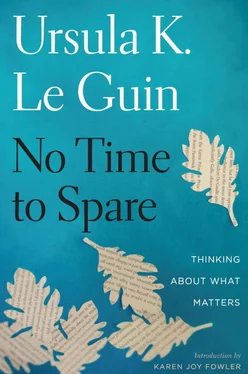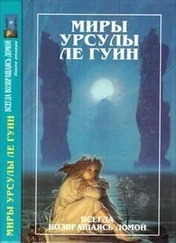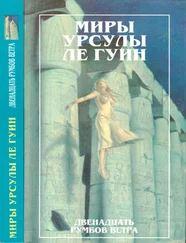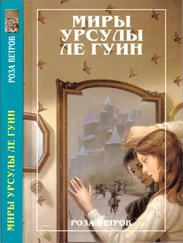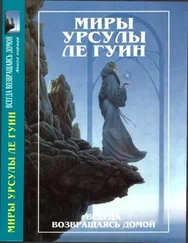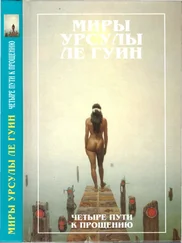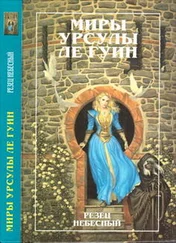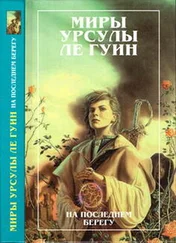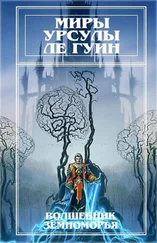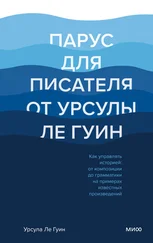Ursula K. Le Guin
NO TIME TO SPARE
THINKING ABOUT WHAT MATTERS
To Vonda N. McIntyre, with love
MANY YEARS AGO I recall seeing a cartoon in The New Yorker. Two men, one a seeker, the other a sage, sit on a ledge in front of a mountain cave, surrounded by cats. “The meaning of life is cats,” the sage is telling the seeker. Thanks to the magic of the Internet, I can pinpoint the year of publication as 1996 and the cartoonist as Sam Gross.
The cartoon came back into my mind while reading this collection. I thought that if I climbed the mountain up to the cave of the wise Ursula Le Guin and posed the predictable question, I might get this very same answer. Or not. Le Guin is not predictable. She might say instead that “old age is for anyone who gets there.” Or that “fear is seldom wise and never kind.” Or she might tell me that “the grave is without egg.”
For the seeker, the answer is less important than what the seeker does with the answer. I don’t know what the important part is for the sage. Le Guin suggests that it just might be breakfast.
Today the trip to the Le Guin cave is less arduous but no less dangerous than the archetypal climb to the mountaintop. You must cross the Wikipedian swamp, with its uncertain footing. Tiptoe by any and all comments sections so as not to wake the trolls. Remember, if you can see them, they can see you! Avoid the monster YouTube, that great eater of hours. Make your way instead to the wormhole known as Google and slide on through. Land at Ursula Le Guin’s website and go directly to the blog to see her most recent postings.
But first read this book.
Here you will find an archive of meditations on many things: aging; exorcism; the need for ritual, especially when performed without specific belief; how a mistake on the Internet can never be corrected; live music and literate children; Homer, Sartre, and Santa Claus. Le Guin is not the sort of sage who demands agreement and obeisance. Anyone who has ever read her books knows this. The musings that follow merely show you what she herself has been thinking about.
But all function beautifully as launchings into your own thoughts. Sometimes the shingle on the cave says that the sage is out. On these occasions, the topic of the day is proposed by Cat instead. “Think about beetles,” Cat suggests, and so I do. Thinking about beetles proves surprisingly expansive, especially when told to do so by the good cat with the bad paws. I think about cats and their adorable murderous ways. I think about the troubled human/other interface. Somewhere inside us, I think, we all carry the Mowgli dream—that the other animals will see and accept us as one among them. And then we fail this dream when the wrong animals ask it of us. We think we wish to join the wild animals in the jungle but will not tolerate the wild animals in our kitchens. There are too many ants, we think, reaching for the spray, when it is equally true that there are too many humans.
In another essay, in another book, Le Guin has said that so-called realism centers the human. Only the literature of the fantastic deals with the nonhuman as of equal interest and importance. In this and so many other ways, fantasy is the more subversive, the more comprehensive, the more intriguing literature. These two issues combined—our inability to deal with our own numbers and our insistence that we are what matters most—may well be the finish of us. And with these thoughts, I arrive at the end of the world, where I tire finally of thinking about beetles and go back to thinking about Le Guin.
For all the decades of her career, Le Guin has been defending the imagination and all the stories that rise from it. I myself have been finding my way up the mountain my entire adult life, to get her answers to questions I didn’t even know I was asking. Since I am now headed toward seventy, this is a long time. I count among the world’s great gifts to me the fact that I know her personally, that I’ve spent many hours in her company. But if I only (only! ha!) had the books, the gift would still be such a great one.
I think that she’s currently having a moment, a moment of recognition and appreciation. This particular moment (she’s had others) is partly about her deep, foundational impact on a generation of writers like me. At the beginning of this collection, she speaks of discovering José Saramago’s blog and thinking, Oh, I see! Can I do it too? Which is precisely how her own work has functioned for so many of us—as an example, a freeing from convention and expectation, an invitation into a larger world than the one we see.
But to my mind, all of Le Guin’s moments, all the recognition and admiration, fall short of her actual accomplishments. I can think of no other writer in the entirety of history who has created the number of worlds that she has, never mind their complexity and intricacy. Where other writers secure their legacy with a single book, she’s written a dozen worthy of that. And her very last novel, Lavinia, is surely among her great works. She has been both prolific and potent. She has been both playful and powerful. She has, in her life and her work, always been a force for good, an acute social critic, necessary more now than ever as we watch the evil turn the world is taking. We who followed her both as readers and writers are the lucky ones. We not only love her; we need her.
What you will find in these pages here is a more casual Le Guin, a Le Guin at home. Some of the issues that have obsessed her throughout her career—the fatal model of growth capitalism; sisterhood and the ways in which it differs from the male fraternal; the denigration and misunderstandings of genre, science, and belief—continue to appear, but they’ve been sanded back to their absolute essentials. It is particularly pleasurable here to watch the lively way her mind works, and how a posting whose trappings initially seem merely sportive becomes deeply consequential.
Le Guin has always been marvelous on the natural world. She is one of the most noticing people I’ve ever met, always paying attention to the birdsong in the background, the leaf on the tree. Her essay here on the rattlesnake and then the one about the lynx work on me like poetry, sparking expanding emotions I can’t quite identify or have no words for.
I should make up the words! Le Guin would. (Google “Fibble, Game of.”) So I should say that when I read Le Guin writing about birds or beasts, about particular animals with histories and personalities and singular behaviors, or when I read Le Guin on trees and rivers and all the vanishing beauties of the world, I feel transpaced. I feel other-awed. I feel tongue-gaped.
Tongue-gapedly, KAREN JOY FOWLER
October 2010
I’VE BEEN INSPIRED by José Saramago’s extraordinary blogs, which he posted when he was eighty-five and eighty-six years old. They were published this year in English as The Notebooks. I read them with amazement and delight.
I never wanted to blog before. I’ve never liked the word blog —I suppose it is meant to stand for bio-log or something like that, but it sounds like a sodden tree trunk in a bog, or maybe an obstruction in the nasal passage (Oh, she talks that way because she has such terrible blogs in her nose). I was also put off by the idea that a blog ought to be “interactive,” that the blogger is expected to read people’s comments in order to reply to them and carry on a limitless conversation with strangers. I am much too introverted to want to do that at all. I am happy with strangers only if I can write a story or a poem and hide from them behind it, letting it speak for me.
Читать дальше
